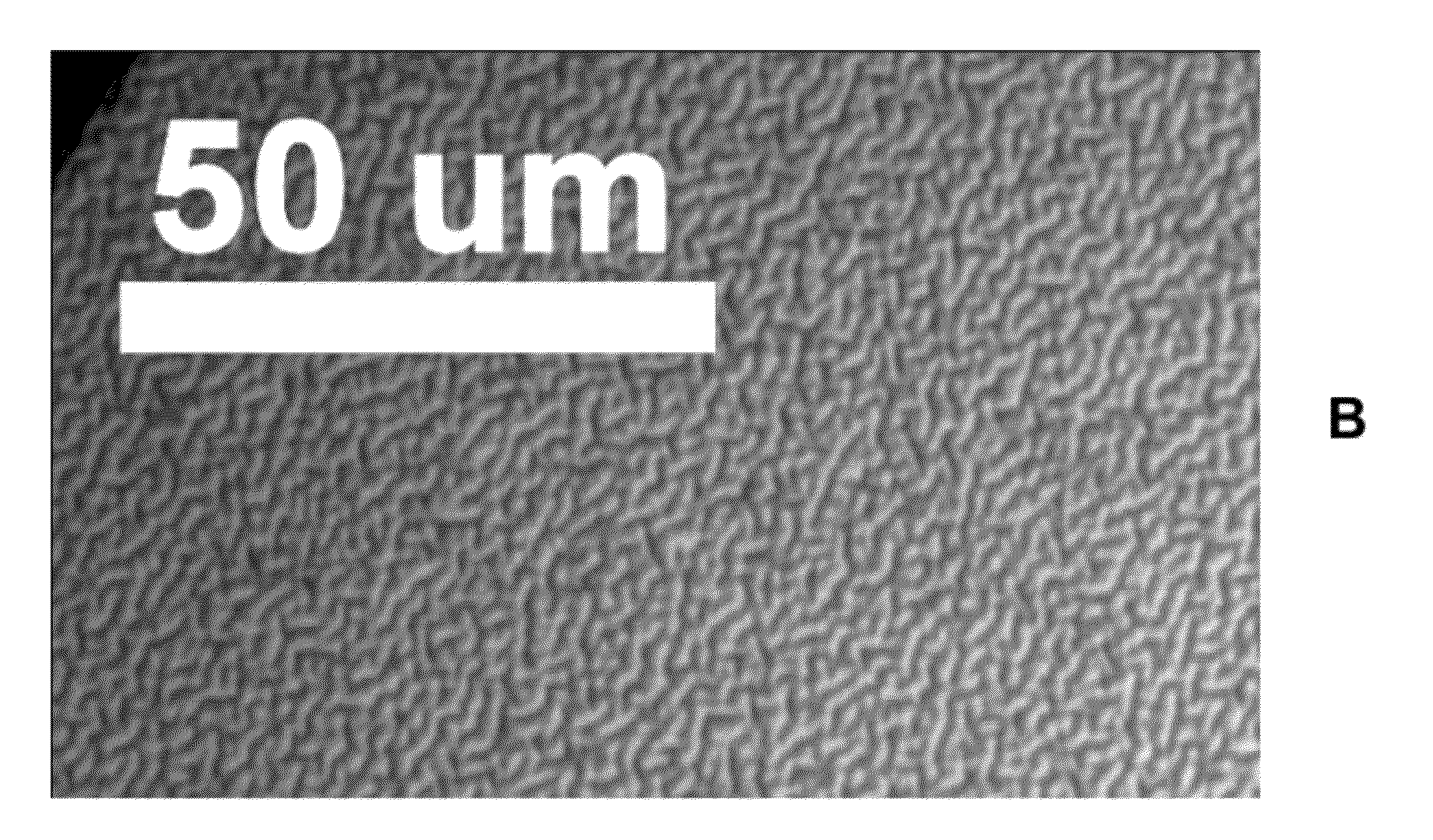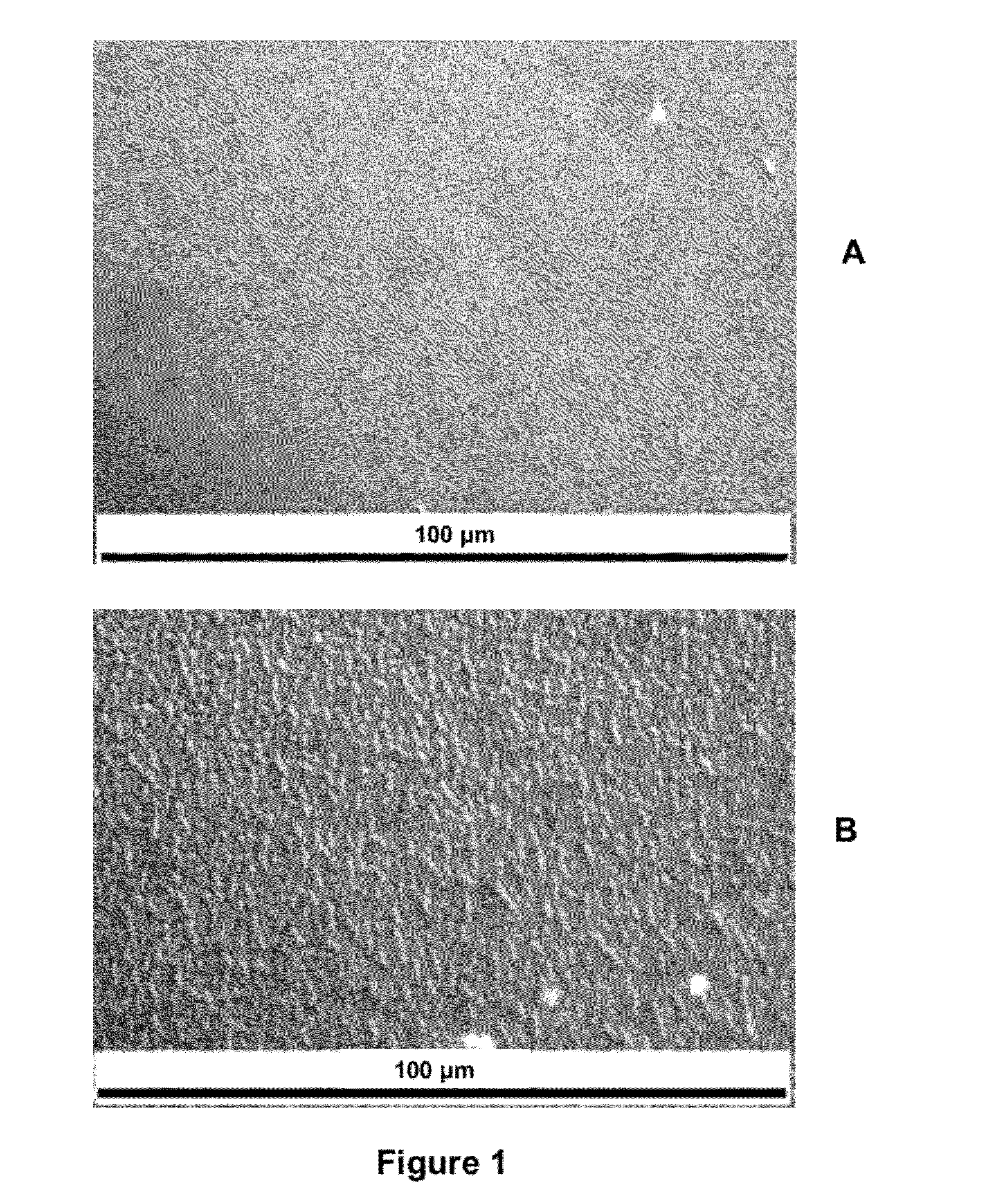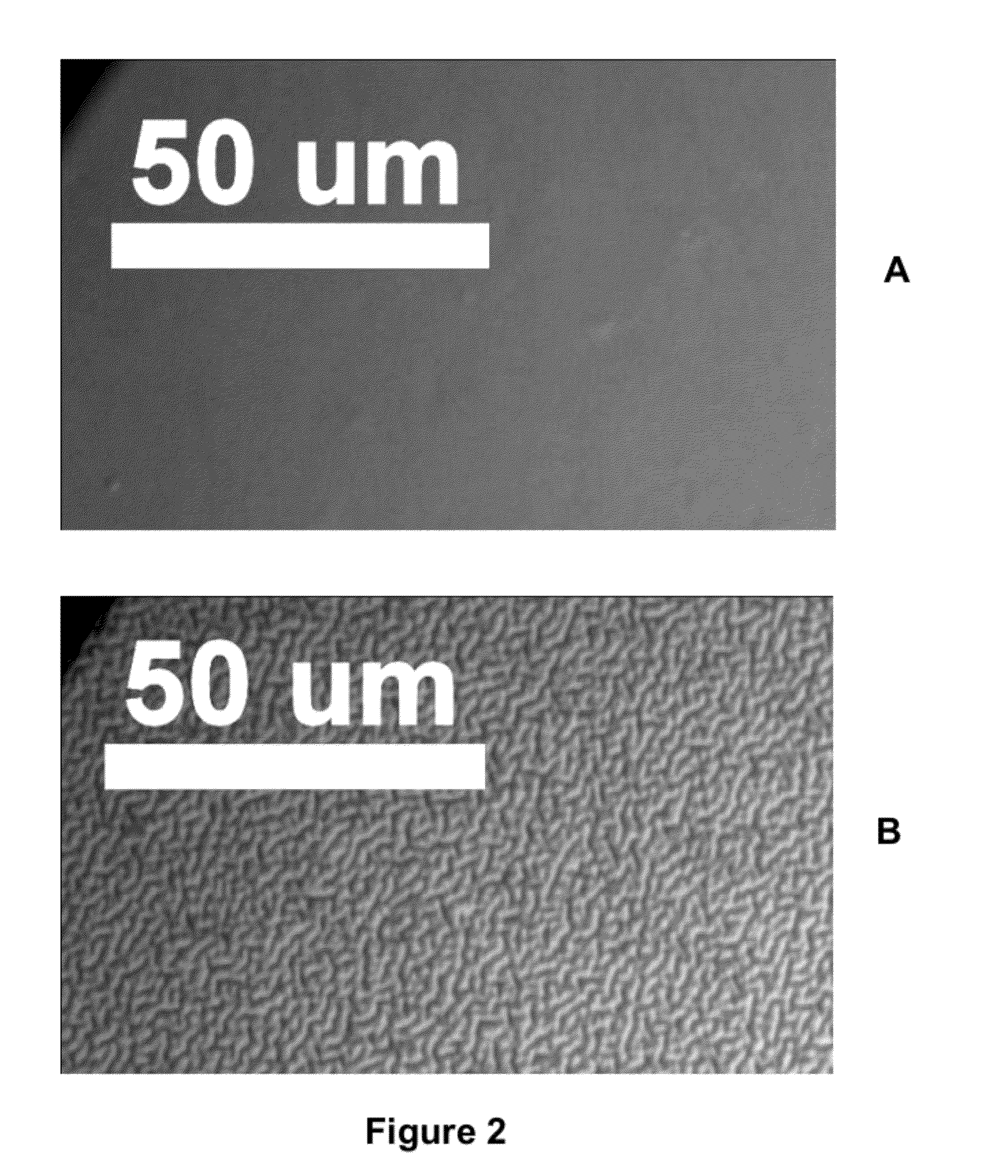Silicone hydrogel lenses with nano-textured surfaces
a technology of nano-textured surfaces and hydrogel lenses, which is applied in the direction of spectacles/goggles, instruments, spectacles/goggles, etc., can solve the problems of cornea health problems, oxygen cannot easily circumvent the lens, and the lens becomes dislodged and/or very uncomfortabl
- Summary
- Abstract
- Description
- Claims
- Application Information
AI Technical Summary
Benefits of technology
Problems solved by technology
Method used
Image
Examples
example 1
Oxygen Permeability Measurements
[0121]The apparent oxygen permeability of a lens and oxygen transmissibility of a lens material is determined according to a technique similar to the one described in U.S. Pat. No. 5,760,100 and in an article by Winterton et al., (The Cornea: Transactions of the World Congress on the Cornea 111, H. D. Cavanagh Ed., Raven Press: New York 1988, pp 273-280), both of which are herein incorporated by reference in their entireties. Oxygen fluxes (J) are measured at 34° C. in a wet cell (i.e., gas streams are maintained at about 100% relative humidity) using a Dk1000 instrument (available from Applied Design and Development Co., Norcross, Ga.), or similar analytical instrument. An air stream, having a known percentage of oxygen (e.g., 21%), is passed across one side of the lens at a rate of about 10 to 20 cm3 / min., while a nitrogen stream is passed on the opposite side of the lens at a rate of about 10 to 20 cm3 / min. A sample is equilibrated in a test media ...
example 2
Preparation of Chain-Extended Polydimethylsiloxane Vinylic Macromer with Terminal Methacrylate Groups (CE-PDMS Macromer)
[0160]In the first step, α,ω-bis(2-hydroxyethoxypropyl)-polydimethylsiloxane (Mn=2000, Shin-Etsu, KF-6001a) is capped with isophorone diisocyanate (IPDI) by reacting 49.85 g of α,ω-bis(2-hydroxyethoxypropyl)-polydimethylsiloxane with 11.1 g IPDI in 150 g of dry methyl ethyl ketone (MEK) in the presence of 0.063 g of dibutyltindilaurate (DBTDL). The reaction is kept for 4.5 h at 40° C., forming IPDI-PDMS-IPDI. In the second step, a mixture of 164.8 g of α,ω-bis(2-hydroxyethoxypropyl)-polydimethylsiloxane (Mn=3000, Shin-Etsu, KF-6002) and 50 g of dry MEK are added dropwise to the IPDI-PDMS-IPDI solution to which has been added an additional 0.063 g of DBTDL. The reactor is held for 4.5 h at about 40° C., forming HO-PDMS-IPDI-PDMS-IPDI-PDMS-OH. MEK is then removed under reduced pressure. In the third step, the terminal hydroxyl-groups are capped with methacryloyloxyet...
example 3
Preparation of Lens Formulations
[0162]Formulation I is prepared by dissolving components in 1-propanol to have the following composition: 33% by weight of CE-PDMS macromer prepared in Example 2, 17% by weight of N-[tris(trimethylsiloxy)-silylpropyl]acrylamide (TRIS-Am), 24% by weight of N,N-dimethylacrylamide (DMA), 0.5% by weight of N-(carbonyl-methoxypolyethylene glycol-2000)-1,2-disteaoyl-sn-glycero-3-phosphoethanolamin, sodium salt) (L-PEG), 1.0% by weight Darocur 1173 (DC1173), 0.1% by weight of visitint (5% copper phthalocyanine blue pigment dispersion in tris(trimethylsiloxy)silylpropylmethacrylate, TRIS), and 24.5% by weight of 1-propanol.
[0163]Formulation II is prepared by dissolving components in 1-propanol to have the following composition: about 32% by weight of CE-PDMS macromer prepared in Example 2, about 21% by weight of TRIS-Am, about 23% by weight of DMA, about 0.6% by weight of L-PEG, about 1% by weight of DC1173, about 0.1% by weight of visitint (5% copper phthalo...
PUM
 Login to View More
Login to View More Abstract
Description
Claims
Application Information
 Login to View More
Login to View More - R&D
- Intellectual Property
- Life Sciences
- Materials
- Tech Scout
- Unparalleled Data Quality
- Higher Quality Content
- 60% Fewer Hallucinations
Browse by: Latest US Patents, China's latest patents, Technical Efficacy Thesaurus, Application Domain, Technology Topic, Popular Technical Reports.
© 2025 PatSnap. All rights reserved.Legal|Privacy policy|Modern Slavery Act Transparency Statement|Sitemap|About US| Contact US: help@patsnap.com



